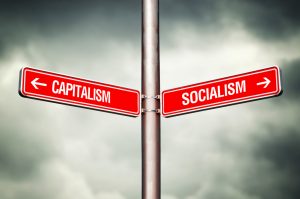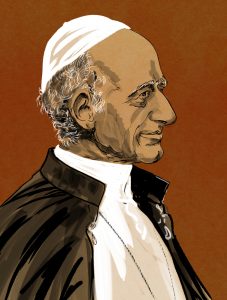Christian Ideal of Society
Ever since the Fall of humanity through Adam, a temporal realm came into existence. This temporal realm created a vacuum for a temporal society. Humanity came together to form a bond and collectively came together to form the first societies. Christianity looks for a balance within this temporal society of the collective and individual good driven through charity and justice; Moral laws that bind humanity together in love but also fairness. When this becomes imbalanced through hate, greed and theft, a rift appears in society and violence erupts. Christian Counseling can help individuals to be better grateful for what they possess and how to better share the benefits.

Christianity does not promise a perfect material world in this temporal realm. There is no utopia on earth but only in the next world. Hence Christianity and its social ideals look for the best possible scenario within society that promotes freedom, liberty, and dignity to the human person through charity and justice. The social virtue of justice driven by charity is the key to peace and prosperity. When justice is denied, then violence emerges.
Understanding the importance of justice to the social order, Christianity believes that the state exists to serve the individual. It exists to permit the individual in all his or her excellence to bear fruit for the common good. The state exists to nurture the talents of society, protecting rights and promoting a common unity that it enhances through individual excellence. The state furthermore, promotes a liberty among the people to express themselves to God unhindered. It does not look to place one altar over another, but stands as a safeguard protecting the beliefs of all involved.
While a Christian state most excellently captures the moral laws of God, one has seen in past centuries, a corruption due to a misguided zeal to maintain a pure society. This has led to religious persecution and a denial of the individual to develop within his or her own will. While the state should look to protect the common good from individuals who pursue corruption, it is important to carefully balance the need of the many versus the need of the few. Hence the question, when does one’s personal views become so public as to disrupt the public foundation of the society? How should such diverse views be censored or debated? How can the person’s inherent rights still be protected? The best recent example of this would be gay marriage as an individual expression that is counter to the traditional norm of societal marriage between a man and woman.
So, the first purpose of this blog was to clearly point out the important ideals of a Christian society, while albeit within a pluralistic society, certain key foundations should exist that balance the individual and the collective through charity and justice. The state protects the integrity of the whole but also protects the expression of the individual.
Capitalism
The social philosophers, Hobbes and Locke, pointed out that the moment individuals came together to form society, they entered into the social contract. With that social contract, individuals became dependent upon each other, working together, sharing common needs and goals. Within that contract, individuals gave up many individual rights to permit the function of society. This meant individuals while using their talents for a wage and living, also contributed and shared with the overall community.

Each individual, according to biblical principles, would earn according to his or her work. With work, came personal property and excess funds for others. Some would earn more than others based upon talent. Naturally, this would lead to economic imbalances. Some in society would excel more than others and hence become more prominent within the society. As the industrial age emerged in Europe, the imbalance between the have’s and have not’s grew considerably. Vast amounts of wealth and power were consolidated within the hands of steel barons.
Without Christian principles of charity and justice at play, many so called Christians sought wealth above justice and fairness. Without the constraint of the virtue of justice, the imbalance became even greater. The worker became victim to unjust wages, horrible working conditions, and long exhausting hours. There was little care for the worker as a person with dignity nor the worker’s family. While the worker became a mere cog in the wheel, the barons became excessively wealthy and with the excessive wealth, became politically more powerful. This led to oppression.
Hence capitalism while adhering to the natural right of property and earning, like all temporal systems can become corrupted without Christian or even basic moral virtue. Unhindered Capitalism can become a poison to society. When monopolies occur and when individuals become more powerful than the masses, an imbalance can occur that can lead to social unrest. Pope Leo XIII, in his encyclical “Rerum Novarum” or “New Things” looked deeply at the issues of unmonitored capitalism and how it could be a corruptive agent against society.
During the late 19th Century, Leo saw the corruption within factories and the mistreatment of the worker. He identified the need of balance within the state to protect the individual worker from the collective demands of the industry. Again, he looked to balance the needs of the many and the need of the few, or in some cases, one, who owned the factory. He reminded everyone that justice demands that the worker utilize his talents and time to benefit the employer, but the employer in turn, must compensate the worker fairly. Of course, the employer will have more wealth than the worker. This is the nature of capitalism. Some have more than others based upon talents or ambition or authority, but all receive a just amount for their particular talent and place. An equal dignity is given to everyone in the process of their role and application of it.
When capitalism is devoid of state regulation and moral virtue, but instead driven by atheistic materialism and greed, then capitalism can become an economic system that can be enslave the worker.
Communism
Communism was an adverse reaction to the abuses of capitalism. Karl Marx, the founder of Socialist Doctrine, expounded in his Communist Manifesto, the need for a new social system. The idea of communism preached a utopia for the disenfranchised. It became quickly attractive to the poor and poverty stricken and it pointed out the many abuses of capitalism. Marx offered a social utopia where everyone shared their talents and no one had more or less but all equally benefited.
Marx taught that society was evolving towards a a classless world where everyone was equal. Authority, power, and wealth would have no meaning in this new world. Since ages ago, the master and slave, lord and serf, and now baron and worker were all phases of domination of one class over the other but merely adapting to new titles. Through conflict and revolution, Marx believed a new society would give birth to a communal society void of private property. Instead of the state existing to serve the person, the person would exist to serve the state, but through this service, all would retain equality.
Of course, within this philosophy was a materialist belief that this world can be perfect. Communism was atheistic in belief and denied God. It saw religion as an “opiate of the people”. Marx saw the church, its moral laws and structures as ways of control, no better than the steel barons. The belief in a world that was not materialist or temporal was way to keep individuals occupied, while others accumulated power and wealth.

Using the abuses of the state, industries and church as a rallying cry, he utilized envy and resentment as a tool to instill in the workers a revolution. King, Tsar, Pope, or employer became seen as oppressor. With a purely materialistic mindset, this philosophy would spread across Europe and the world, infecting millions into the communist cause. With its implementation in Russia in bloody revolution in 1917, communism would find its home base and spread its errors throughout the world.
Within communism, personal property was stripped of individuals. The individual became property of the state and creating a perfect utopia. Personal choice, personal belief or any religious ideas that were contrary to the envisioned goal of the state became counter productive and eliminated. This led to massive persecutions of anyone who did not fit the proposed social outline. Ultimately, the failed experiment of communism could not sustain itself.
The basic tenets of human nature look at work and reward. If one works harder or has greater ideas, then they reap the award, but when this type of innovation is not rewarded, but equally distributed, then the drive for personal gain is prevented. In Russia alone, many were forced to a new servitude on state farms where those who worked harder were given the same as those who did not.
Soon, a new slavery emerged, where the illusion of communism became evident. A top the communist party, sat the new barons and kings, under the guise of directors for the common good. This exposure was illustrated in Orwell’s “Animal Farm” where the animals on the farm are made to believe their hard toil is for the common good, while the communist pigs engorge themselves upon the work of the other animals.
In essence, Communism strips the human being of all personal dignity under the false direction of a greater common good that ultimately falls upon itself because it refuses to reward creativity and hard work. Coupled with its materialist and atheistic tenets, it leads to a system more oppressive than unregulated capitalism. This is exactly what Pope Leo XIII had warned. He warned everyone of the pitfall of both systems but the overtly more dangerous outcomes of a communist regime. His words proved to be prophetic under the rules of Lenin and Stalin and subsequent communist leaders throughout the world.
Christian Response
After the words of Leo, came the words of Pope Pius XI in his encyclical “Divini Redemptoris” on Atheistic Communism in 1937.. In it, Pius reiterated the errors of communism made by his predecessor regarding communism. He pointed out that the right to private property and accumulation of wealth is within the dignity of the human person and that the state exists to help the individual progress. He listed the numerous errors that are also found in a materialistic society that promises only material things in a fallen world. Pius reminded everyone that no utopia promised by the communists can exist in a fallen world. He pointed out instead that humanity can only attempt to make the most just society on earth by emulating Christ, moral virtue but especially charity and justice.

Pius called for a regulated capitalism where a balance existed between the needs of the many and the needs of the individual. He reminded workers and employers of the reciprocal justice that they owed each other. He called for those within Christian ministry to preach the Gospel to the workers and re-Christianize the world. He called for ministers equipped to battle the lies of the communists and to preach what true justice demands.
Pius reminded the State itself, its grave importance in maintaining a harmony between the individual and the collective. He supported regulations that promoted fair and just working wages, conditions and hours. Through charity and justice, he felt the world could present a more Christian society that granted a more sound balance and economic system.
Despite the pleads, a more secular world was deceived by communism. After the Second World War, Stalin masterfully played the West and divided the world between free capitalistic societies and enslaved communist societies. Russia continued to spread its errors through the aftermath of World War II leading to the decades long Cold War which on numerous occasions brought the world to the verge of nuclear annihilation.
Communism would spread to Latin America, South East Asia and China. To this day, China remains an oppressor to freedom, with the re-emergence of Russia, not as a communist state, but nonetheless a authoritarian state with communist DNA still flowing through its leader, Putin.
Christians must respond as Pius and Leo pointed out with social action that promotes justice and charity in society at all of its levels. Society within Christian teaching is first and foremost at its cellular level within the family. The family is the key to society. A family that follows Christ and His laws is able to give to society a gift of charity and justice. Springing forth from the family, these virtues can boost the work place and secular venues in a shared vision of mutual gain.
Also of great importance is prayer. Prayer for a better society that reflects the Natural Law and laws of Christ is something that a Christian should remember everyday. In Catholicism, Our Lady of Fatima in 1917 warned the world of communism and the errors Russia would spread. She pleaded with the world to find repentance with God and to prayer the Rosary.
There is no perfect society in this fallen world, but we can try to make it as best as we can despite our own inherent weaknesses and sin. It is through a society based on Natural Law and Christ that can give humanity its best chance. This society will look to balance the needs of the one and collective but also look to serve the individual instead of repressing the him or her. This society must base itself on charity and justice. Without these two social virtues, no system or society can thrive.
Christian Counseling Perspectives
As Christian Counselors it is important to remind the distraught or financially strained that God has a plan. One cannot be tempted in business to take illegal shortcuts or use other human beings as a means to an end. Individuals who are suffering financially should look for guidance in the poverty of Christ as a way of simplicity. Christ Himself worked an honest day work as a carpenter with His father St. Joseph to serve as an example of what it means to work and share one’s talents. In Christ, there was no envy of others who made more money, but always charity and respect with justice to all.
Communism looks to stoke jealousy in the poor and to lead them to a far more dangerous path that strips one of property and earnings, while unregulated capitalism uses the human person as a means to an end. Christian Counselors need to guide the disenfranchised down the middle road and to always work hard, be fair and keep faith in Christ in all financial troubles.
If you would like to learn more about AIHCP’s Christian Counseling Certification, then please review the program and see it if matches your academic and professional goals. The program is online and independent study and open to qualified professionals seeking a four year certification.
Other Resources
Divini Redemptoris. Pius XII. Papal Encyclicals Online. 1937. Access here
Animal Farm. George Orwell. Book Analysis. Access here
Communist Manifesto. Karl Marx. 1848. Access here
Rerum Novarum.Pope Leo XIII. Vatican Content. 1891. Access here
